Story highlights
Hubbard is the first transgender athlete to compete at Commonwealth Games
New Zealander was favorite for gold
Her presence has been the cause of much debate
It was a despondent ending to an afternoon which had promised historic gold.
Transgender weightlifter Laurel Hubbard departed the Carrara Sports Arena with a heavily bandaged elbow, ligaments likely ruptured, and hopes of becoming the first transgender athlete to win Commonwealth gold ruined.
After much discourse and calls for her to be banned, Hubbard stepped onto the dice Monday as favorite for gold in the women’s 90kg-plus category.
Having shunned the pre-competition spotlight – the New Zealander arrived on the Gold Coast later than the rest of her teammates – the focus was very much on the 40-year-old who has split opinion in recent months.
She leaves the Gold Coast without a medal, but has still made her mark by becoming the first transgender athlete to compete at the Commonwealth Games.
“Crying my eyes out watch Laurel Hubbard, I wish I could share some of this pressure with her,” tweeted dual-international athlete and transgender activist Kirsti Miller.
“Too many of us have been hurt by sport please Australia make me proud stand up for this brave woman.”
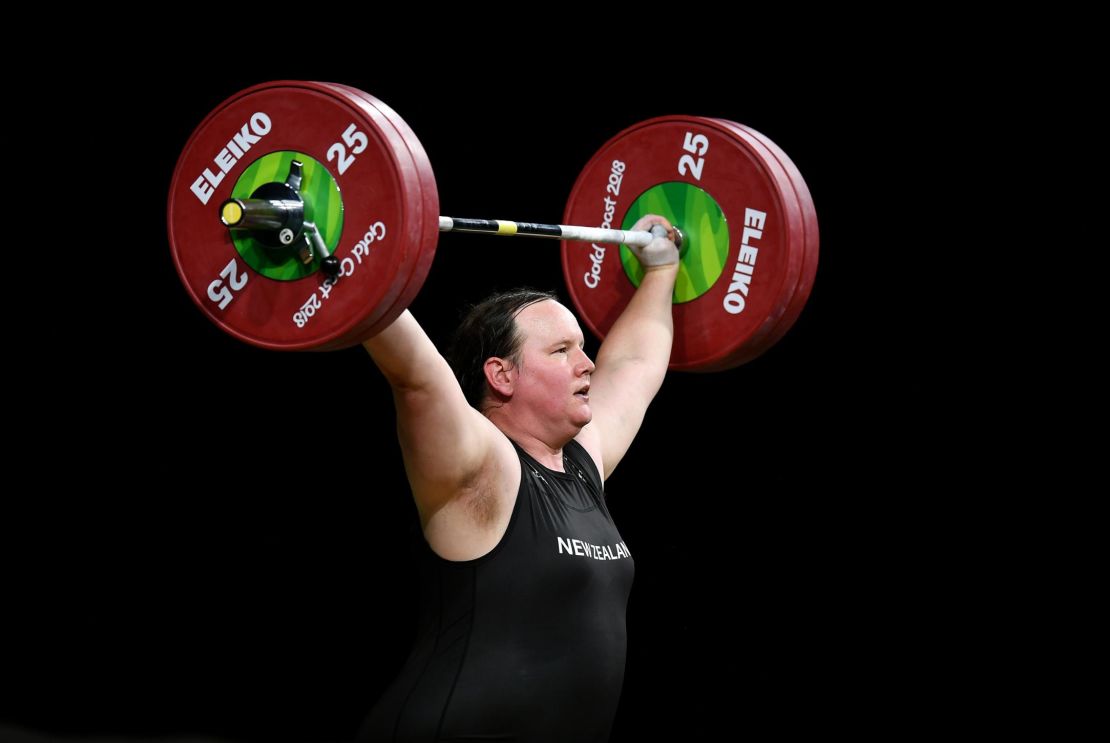
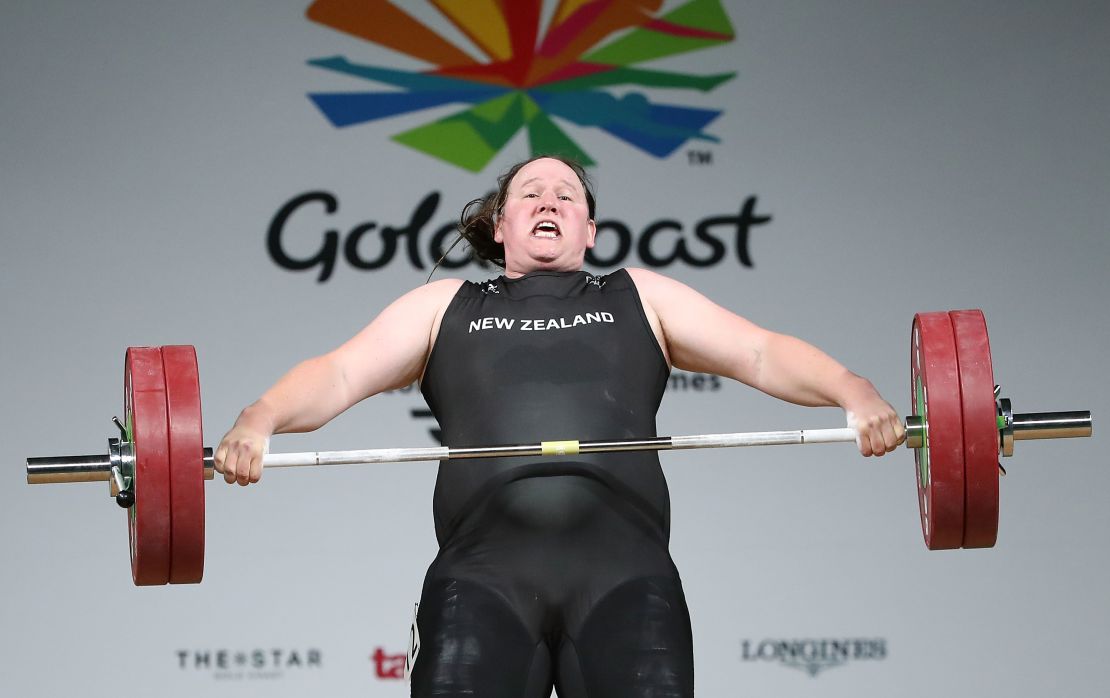
READ: Netball idol defies cultural norms
READ: ‘Fittest woman on earth’ wins gold
No regrets in attempting record lift
Hubbard started the competition promisingly.
Her first attempt of 120kg in the snatch was good enough for first place, but in attempting to break the Games record with a failed 132kg lift the Kiwi damaged her elbow to such an extent that she was unable to compete in the second half of the competition, the clean and jerk.
“The one saving grace in all of this is I’m not in any great pain at the moment. I’m sure that will come with time,” Hubbard told reporters, adding that she had “no regrets” about the record-breaking attempt.
“At this stage we don’t know the exact details of the injury.
“It seems likely that I have ruptured a ligament, some insignificant tissue damage. But until we have further scanning we won’t know the details.”
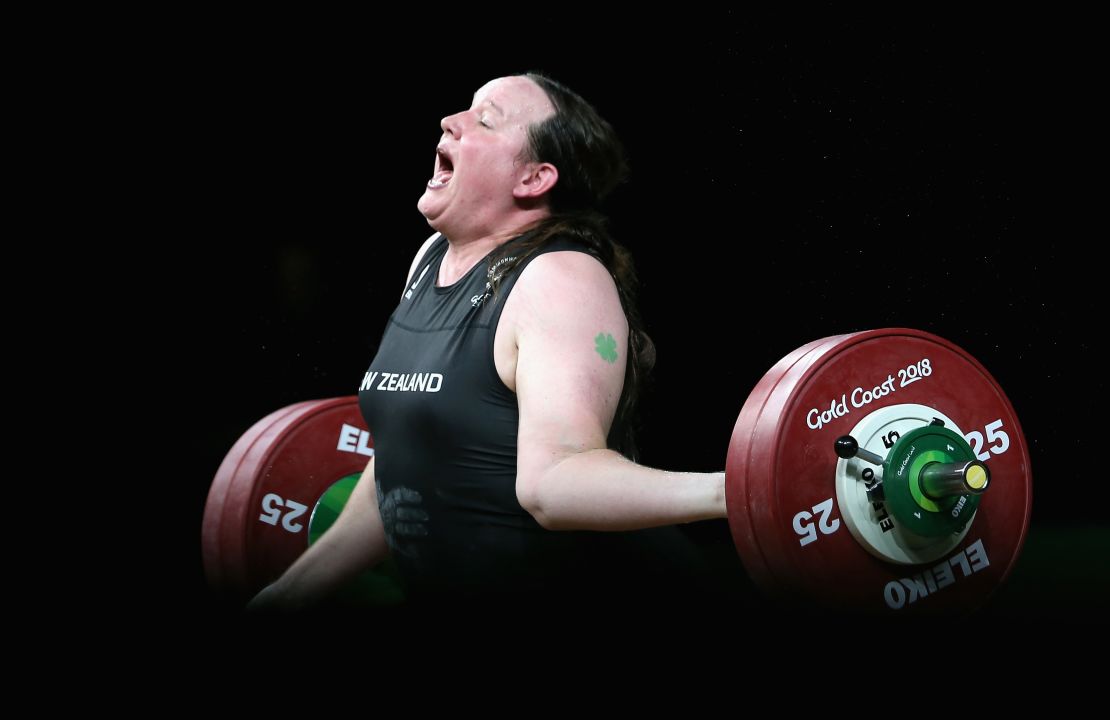
‘A woman is a woman’
After undergoing 12 months of hormone therapy and recording low levels of testosterone, Hubbard – who lived as Gavin Hubbard until 2014 – was cleared to compete as a woman by the International Olympic Committee last year.
There had been much debate over whether the two-time world silver medalist should have been allowed to participate, with critics claiming an athlete who had previously represented her country as a man had an unfair advantage.
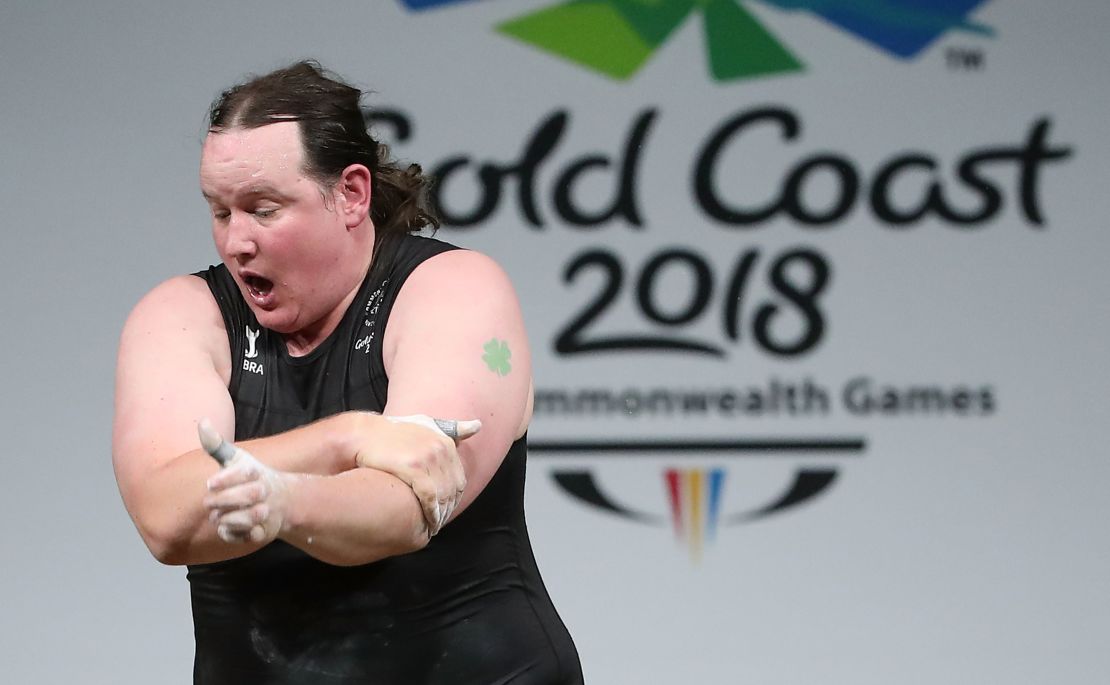
Only last month Australian Weightlifting Federation chief executive Michael Keelan protested against the New Zealander’s right to compete, while Samoa’s head coach Jerry Wallwork has also voiced his opposition.
“A man is a man and a woman is a woman and I know a lot of changes have gone through, but in the past Laurel Hubbard used to be a male champion weightlifter,” he told reporters before the competition began Monday.
“The strength is still there and I think it’s very unfair, and for all females it’s unfair.”
Standing at 185 cm and weighing 130kg, Hubbard was the tallest and heaviest athlete in the field. She was also the overwhelming favorite.
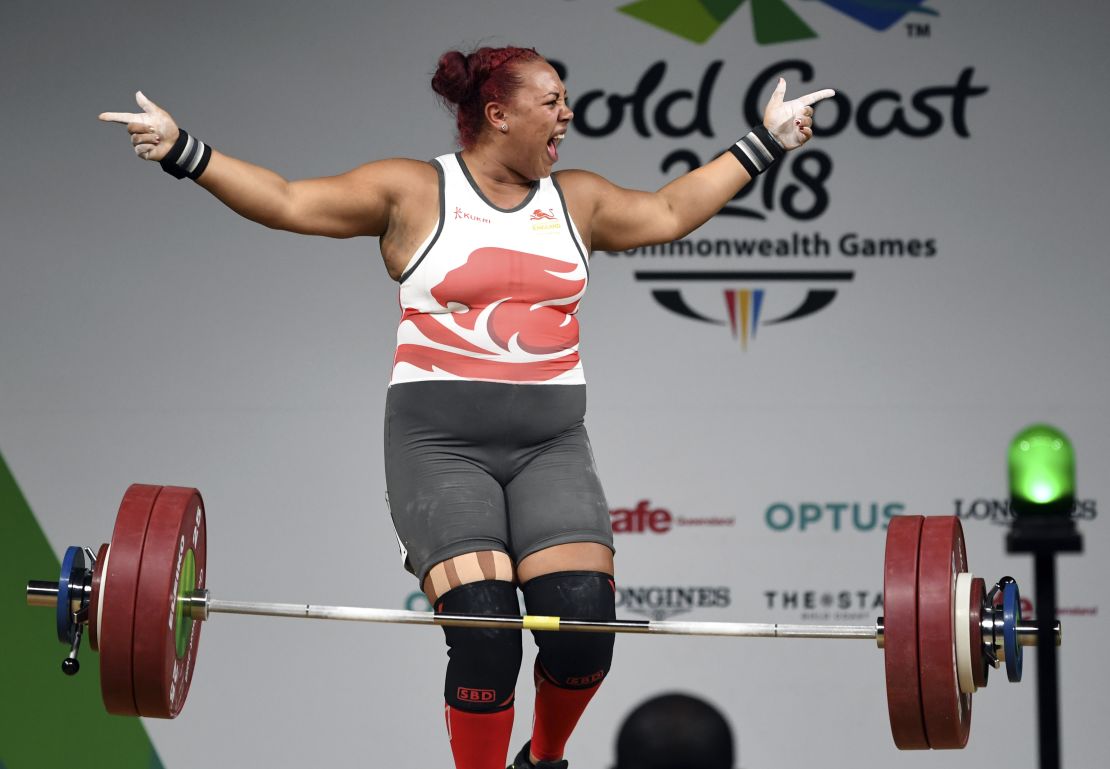
While some of her fellow weightlifters have declined to comment during the Games, England’s Emily Campbell –who competed against Hubbard in the 90kg+ category – was supportive of her rival.
“She just wants to lift. That’s all she wants to do, come out and lift, have a good time and enjoy doing what we love to do,” the English weightlifter told reporters after winning bronze.
“People shouldn’t be making comments and making her feel horrible for doing something she loves to do.
“She’s human, like the rest of us. It doesn’t always go right, doesn’t always go to plan.
“I just hope they’re mindful of how she feels. She’s a person.”
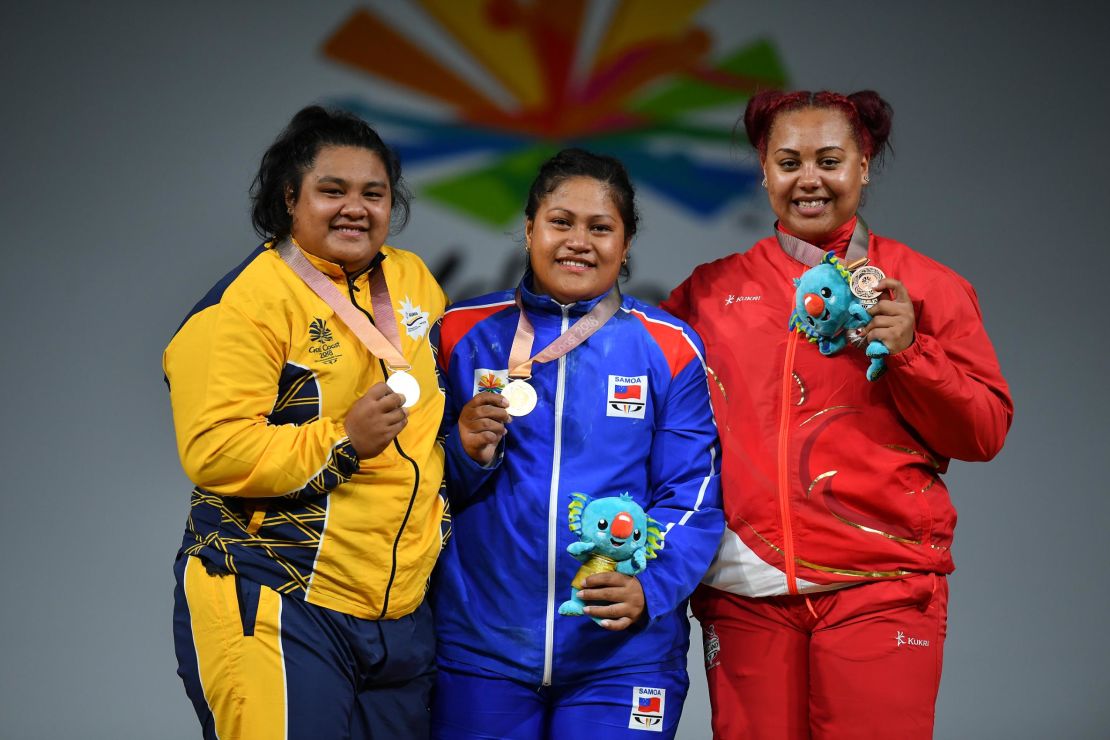
‘The crowd were magnificent’
Described as an “introverted character” by New Zealand’s weightlifting high performance director Simon Kent, Hubbard admitted she had worried about the crowd’s reaction prior to competition.
While the spectators naturally reserved their loudest cheers for home favorite Deb Lovely-Acason, Hubbard’s first appearance on the stage was warmly applauded.
“The crowd was absolutely magnificent,” said Hubbard. “It felt just like a big embrace.
“I wanted to give them something that was the best I could do. My only real regret was that I was unable to show that.
“Look, it would be untrue to say that the thought never crossed my mind. But there’s no indication at all that they were anything other than absolutely fantastic.
“A real credit to the Australian people and also the broader sporting community.”

Just months after Adam Rippon became the first openly gay American man to win a medal at the Winter Olympics and snowboarder Gus Kenworthy shared a kiss with his boyfriend live on national television in Pyeongchang, gold for Hubbard would have been another momentous moment for the LGBT community at a major international sporting event.
While Hubbard’s afternoon did not go to script, history was still made and discussions will continue.
“I think you have to be true to yourself and I hope in this case that’s what I’ve done,” Hubbard added.
Samoa’s Feagaiga Stowers won the gold medal, with Charisma Amoe-Tarrant of Nauru taking silver.


